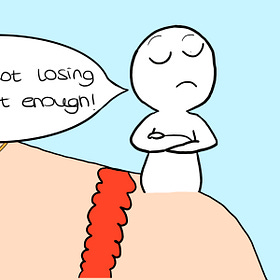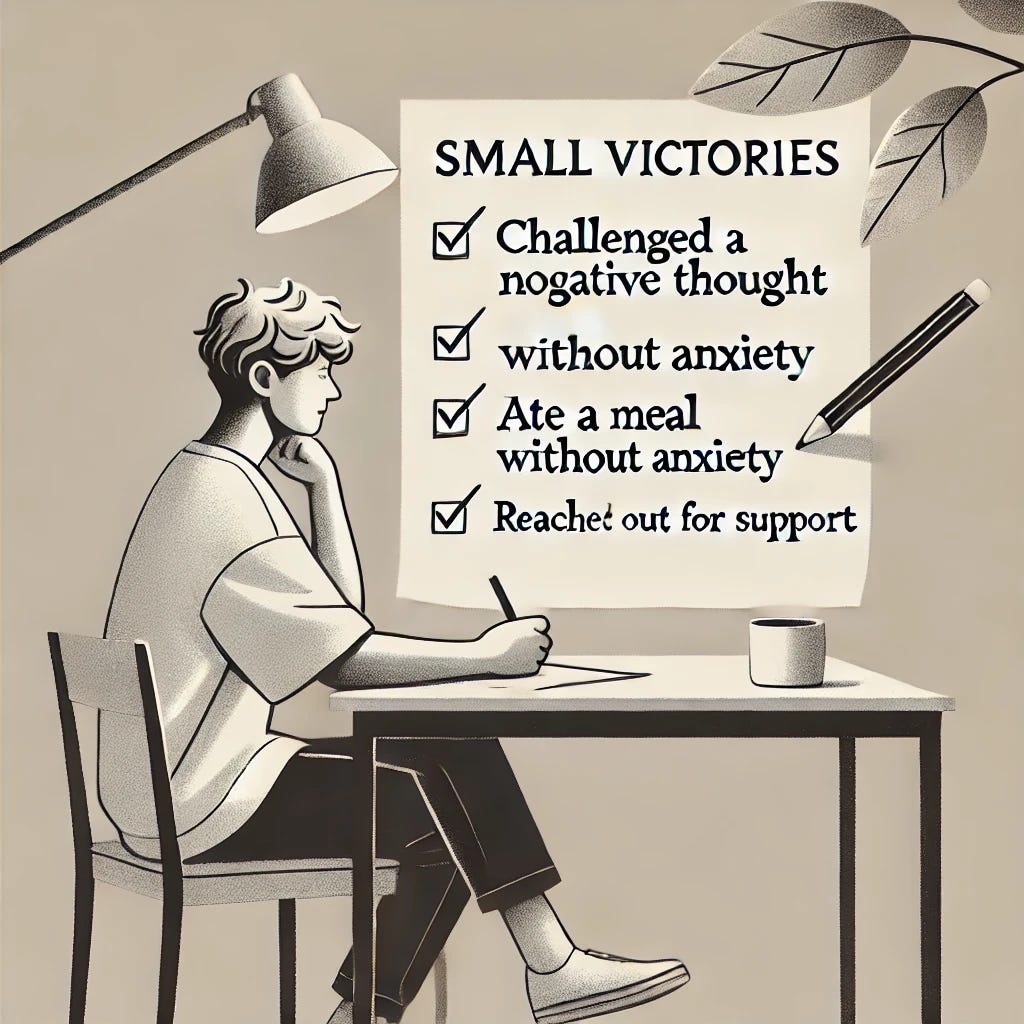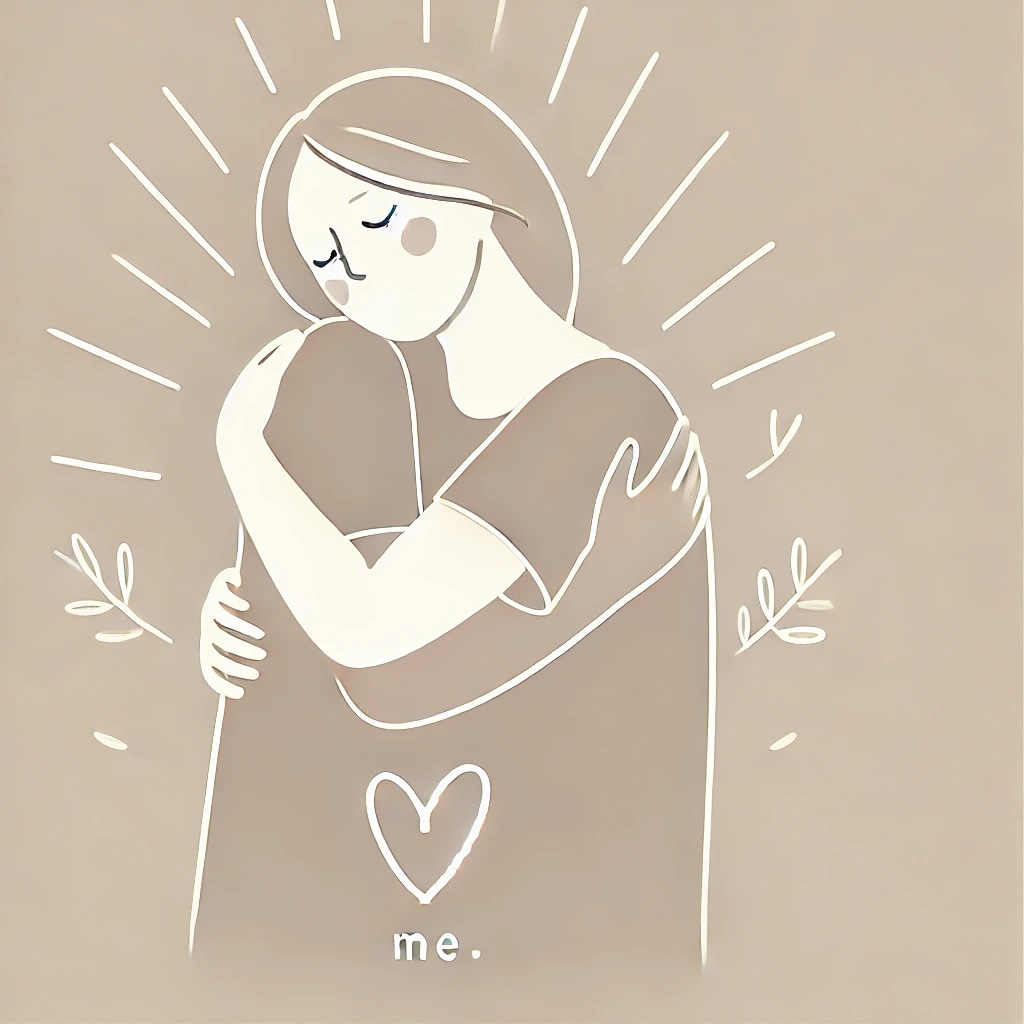Dealing With Setbacks in Eating Disorder Recovery
Working as an eating disorder therapist grants me the privilege to accompany people through their deeply personal journey towards recovery. When starts align, we match with the client, the client feels understood and ready to take steps and some leap of faith; I get to witness those incredible moments when a client, wide-eyed, with disbelief shares: “I can’t believe I did this. One year ago, I thought this was impossible to achieve. Now, I no longer engage in *eating disorder behaviour*”.
We, together, celebrate the victory, the progress and the effort. I feel so proud, life feels simply a-mazing!
But, as with any journey, there are times the opposite happens: A client might return next week telling me “I’m doubting my decision to recover. I had a bad body image week, I found myself falling back into old habits, and now all of my progress is lost.”
In those moments, I tell them something unexpected, something that often comes as a shock:
“This is a part of recovery”
A setback can feel like a step backward, but what if we viewed it differently? What if, instead of seeing it as a failure, we accepted setbacks as an essential part of the healing process?
As a therapist, I do not expect a “perfect” client or recovery process because I know that it doesn’t exist, and it shouldn’t have to exist. If a client never experiences a setback, I would actually be a bit suspicious, as it is only natural to have those moments where you feel like everything just went back to zero. So if you are currently in your recovery journey and are experiencing a slip-up, listen up!
1 - Slip ups are a PART of recovery. Why? Because they’re opportunities to learn.
When a slip-up happens, it’s not the end of progress but actually an opportunity to understand more about yourself and your journey. Take a step back and reflect: What happened during the slip-up? Where were you? Who were you with? What were you doing? What thoughts were running through your mind?
Next time you are in a similar situation, you get to remind yourself: “Ah, this has happened before. I know how to handle it differently this time”.
Recovery is all about recognizing your triggers, which empowers you to create a coping plan and cultivate a sense of safety and resilience as you continue your journey.
2 - Recovery is not a destination to reach, but a journey with ups and downs.
Slip-ups can feel defeating when you see the world in black-and-white terms, which is common when you have an eating disorder. In your head, it might feel like you’ve either recovered perfectly or not at all. Therefore, setbacks can feel like all progress is lost. But the truth is, that progress, all the effort you’ve put in, does not vanish with one slip-up.
If you find yourself trying to “perfect” your recovery, check out my blog post:
The Shapeshifter: Demanding Eating Disorder Voice in Recovery
It was one of those days that I dreaded going to therapy. The worry that I have nothing to say had started, alongside the anxiety of the session consisting of quiet and awkward moments.
Embrace the imperfections in your journey. You are not supposed to be perfect. That is the thinking that got you into this in the first place, so it will not be able to bring you out of it. Recovery is about learning to be flexible and finding strength in the process. It’s about living in the gray area and embracing the discomfort.
3 - Make a list of ways you have improved until now, no matter how small, to shift your perspective.
When you experience a slip-up or get triggered, your eating disorder is likely to block out all the good stuff, all the progress you’ve made until now. To break free, get some pen and paper and start writing down your small victories. Did you challenge a negative thought today? Did you eat a meal or food that you usually would have avoided? Did. you reach out to someone for support instead of binging? These are all significant achievements that deserve recognition and celebration.
4 - Compassion is KEY.
We hear this often: “Be compassionate towards yourself” and “Practice self-compassion!!” But this can be very difficult for people who struggle with an eating disorder, who tend to have a very strong Inner Critic. It’s like I hear you say “If I knew how, I would do that already!!” So here’s the recipe from Dr. Kristen Neff who has identified 3 components of compassion:
1. Self-Kindness: Treating oneself with warmth and understanding instead of criticism—just like you would with a friend.
Tip: If your best friend or someone you love was experiencing a slip-up and was upset, what would you tell them? You wouldn’t shout at them or punish them, telling them they are a failure for this misstep. You would talk to them nicely, compassionately. Do the same for yourself. Write down those kind words, look at yourself in the mirror, and repeat them, even if you don’t believe it yet.
2. Common Humanity: Recognizing that everyone faces struggles and imperfections—you are not alone in this.
Tip: Share your struggles with a trusted friend or support group. Often, you’ll find that others have similar experiences, which can help you feel more connected and less isolated. Remember, we all struggle. Your experience, though unique to you, is part of a broader human experience of facing challenges and seeking healing.
3. Mindfulness: Being aware of one's experiences without judgment or avoidance.
Tip: Practice grounding techniques when you feel overwhelmed. Notice your surroundings, the sensation of your breath, or the feeling of your feet on the ground. This can help you stay present with your emotions without getting swept away by them. It about observing your thoughts and feelings without labeling them as “good” or “bad.” Simply notice them as they are.
5 - Talk to someone.
When you’re stuck in your own head, problems can seem insurmountable. Sometimes, just saying things out loud can provide a sense of relief. Reach out to someone you trust, whether it’s a friend, family member, or therapist. Sharing your struggles can give you a new perspective and help you feel less alone. Talking to a supportive friend, family member, or therapist can provide a valuable outlet for sharing your feelings, gaining perspective, and receiving encouragement.
Remember, you don't have to face it alone – seeking support can help you navigate the challenges and reinforce your commitment to healing.
6 - Imagine yourself a year from now.
Think ahead to the future. Imagine looking back on this challenging moment and saying, “Wow, that was hard, but I handled it well.” What would you do now to make that future a reality? What steps can you take today to support yourself?
Remember, no one expects you to recover perfectly. You’re allowed to struggle, to have bad days, and to stumble. What’s important is that you keep moving forward, one step at a time. Because in the end, nothing will feel as good as health and freedom do.
So, if you’re in the midst of a setback right now, listen up: This doesn’t define you. It’s just a part of your journey. And you’re doing better than you think. Keep going. Recovery is worth it. You are worth it!
🌱I give online and in-person (Leiden, the Netherlands) therapy and counselling sessions for eating disorders, body image struggles and more. Send me a message via realisticbodytherapist.com









This is so helpful thank you 😊